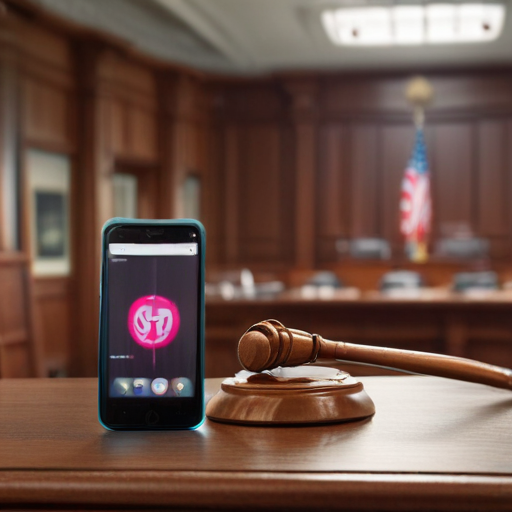TikTok creators recently gathered on Capitol Hill in Washington, D.C., to express their dissent regarding the “Protecting Americans from Foreign Adversary Controlled Applications Act.” This legislation, currently under consideration in the House of Representatives, aims to impose significant restrictions on TikTok, which may potentially lead to a ban on the popular app. This comes as the Supreme Court is poised to hear oral arguments regarding the constitutionality of this proposed legislation, which could jeopardize TikTok’s future in the United States.
The Supreme Court’s decision, expected to be influenced by considerations of free speech rights outlined in the U.S. Constitution, could arrive next week. If the law takes effect on January 19, 2024, without a ruling from the court, it is anticipated that while users may still be able to access the app if already downloaded, they would lose the ability to update or redownload the app thereafter. This uncertainty raises concerns for the roughly 115 million monthly active users in the U.S., as well as thousands of content creators who rely on TikTok for their income derived from advertising, partnerships, and merchandise sales.
George Wang, a staff attorney at the Knight First Amendment Institute, cautioned that shutting down TikTok—even temporarily—could have far-reaching consequences not just for content creators, but for all users who actively engage with the platform. He emphasized that such a move could set a troubling precedent for online speech regulation.
Support and opposition to the ban are sharply divided. While the government argues that TikTok poses national security risks due to its ties with Chinese company ByteDance, many advocates and industry leaders are concerned about the implications for free speech. High-profile amicus briefs have been submitted by various organizations, members of Congress, and even notable political figures, including President-elect Donald Trump, who emphasized that a resolution should be sought that safeguards the app while also addressing security concerns.
As the court prepares to deliberate, experts note that the outcome will significantly impact the digital landscape, considering TikTok’s substantial presence among younger demographics. Legal scholars, such as Erwin Chemerinsky from Berkeley Law, have emphasized that this case embodies a critical conflict between free speech rights and national security priorities.
In a time of heightened tensions regarding technology and privacy, the potential ruling offers a chance to reassess how digital platforms interact with First Amendment rights, underscoring the need for thoughtful dialogue around national security and the freedoms afforded to digital expression.
In summary, the fate of TikTok hangs in the balance as both users and content creators await the Supreme Court’s decision, which may redefine the relationship between technology, free speech, and government regulation in the digital age.
